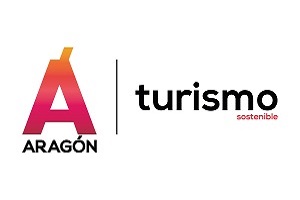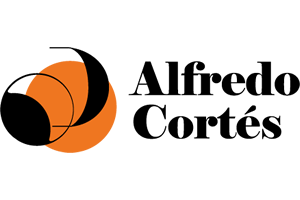Although the Aragonese capital brings together more than 2,000 years of history, Zaragoza does not stop looking to the future, as evidenced by the momentum of initiatives that, for some years now, seek to turn it into a ‘smart city’. From mobility to culture, including other areas such as the economy, the city has been adding projects that are beginning to place it on a relevant level in the field of smart cities. Proof of this is, for example, the rise it experienced in the 2021 ranking prepared by the IMD business school, in which Zaragoza climbed no less than 33 places from number 45 to fifteenth, above cities such as London, Los Angeles and Madrid.
A recent example of this commitment to the ‘smart’ concept can be found in the initiative of the Zaragoza City Council’s Economy Department to modernize the city’s shopping malls. It was at the end of November when this project was presented as part of the Local Commerce and Hospitality Plan in which, as a result of a challenge competition launched in July, the winning companies have designed various proposals to transform commercial areas such as Delicias Street.
These initiatives affect the field of measurement, in sections such as air quality, gauging and noise pollution, but also offer experiences to passers-by such as digital gymkhanas, hybrid art, a giant screen in the Vertical Garden of Las Delicias that will work on the concept of hyperreality or a commercial loyalty program.

A commitment to smart mobility
Mobility is one of the areas with more proposals with an eye on the ‘smart city’ concept. One of the latest announcements in this field was related to the Maas app (Mobility as a Service). This application, whose tender specifications were published in October, will encompass all the mobility services offered by the city and its surroundings. According to municipal sources, and after its award, its implementation will begin during the first half of the year.
In this way, MaaS will be a kind of ‘application of applications’ or, in other words, a platform that allows the user to plan, book, pay and obtain information in real time about the means of transport in the Aragonese capital.
As explained by the councilor of the area, Natalia Chueca, in the presentation of these specifications, Maas seeks to “integrate in the palm of the hand the entire mobility ecosystem available, including not only public transport, but also shared vehicles or parking, as well as the network of electric vehicle chargers and all the novelties that may arise”.
This is by no means the only application concerning mobility in the Aragonese capital. For example, Avanza, the city bus concessionaire, already allows validating the ticket from the cell phone, as well as paying and recharging the service card, as announced by the company last December.
The cab sector also wants to jump on the app bandwagon and, according to municipal sources, they are already conducting pilot tests of an app that, among other things, will allow the user to know how much it would cost, at most, the journey he wants to hire.
Autonomous driving on buses and streetcars
Beyond these applications, bus and streetcar services have opted for innovation in aspects such as autonomous driving. This is one of the lines of the Digicity R&D project, an initiative presented almost a year ago that turns the city into a test bench for fifty innovative mobility products.
In the case of the autonomous bus, the project consists of assisted driving to steer the vehicle on certain stretches, while on others it is the chauffeur who drives.
In addition to the use of the intelligent and autonomous vehicle, this R&D project, in its more than 50 products under test, also has an impact on technologies such as hydrogen, 5G and Wifi6 connectivity, artificial intelligence or next-generation solutions.
And, as far as the tramway is concerned, the project incorporating the data collection systems that will make it possible to develop new driving assistance initiatives for the benefit of safety was already presented at the end of August. In the long term, they will enable autonomous driving of this means of transport.
This is the Compass project, led by the company CAF, in which, in addition to Zaragoza, the Norwegian capital, Oslo, is also participating. The first streetcar equipped with all the necessary material for this data collection was already presented last year in the Parque Goya depot.
Another aspect on which the City Council is working has to do with regulated parking. In this field, the city is looking to launch an app that will make it possible to find out if there are free parking spaces in the places designated for this purpose. This initiative would be along the lines of the current application, called Apparca, but offering more accurate data.

And, in terms of traffic control, the city council explains that the network of cameras is being progressively renewed by installing intelligent devices that offer more information, such as traffic measurements, even discriminated by means of transport.
Data, by the way, anonymous, which, in the future, will help to regulate and plan traffic in Zaragoza together with other elements already in place, such as, for example, the intensity sensors located under the asphalt.
And, beyond mobility, the Aragonese capital has also occupied a privileged place in terms of drones. The city was the first in Europe to authorize, in 2021, a testing and training space for this type of aircraft in an urban environment. Known as Hera Drone Hub, this test space is located in the vicinity of the Delicias station and since it saw the light is used by companies and projects seeking to experiment with these devices.
Also home delivery: autonomous robots
Zaragoza has also been a pioneer in the field of autonomous robots. It was in the summer of 2022 when the city became the first in Spain and one of the first in Europe to launch an autonomous logistics project, with the help of the company Goggo Network.
Specifically, the company has developed a pilot initiative for these last-mile transport robots to travel the streets of the Aragonese capital. The devices, depending on the situation, circulate completely autonomously or remotely controlled by an operator.

However, the commitment to turn Zaragoza into a ‘smart city’ does not stop at these issues; the city council has been promoting other projects in areas such as irrigation control in the city’s parks and gardens, so that sensors can be used to determine when it is convenient to do so.
This intelligent technology is also present in the cleaning and waste management with, for example, the control of containers. The sensors will let the municipal services know whether the containers are full or empty, or whether they are overturned, which is not unusual in the capital of the cierzo.
A multitudinous virtual offering
The area of Culture did not want to be left out of technological advances either, with the virtual flower offering as the spearhead. This proposal, which was born out of necessity due to the restrictions of the pandemic in 2020, attracted more than 330,000 users during the last Pilar festivities and generated 32 million impacts.
A success that has earned it awards such as the Helixa Summit Award 2022 for the most innovative sociocultural initiative, and which returned last year with new features such as the metaverse of the Plaza del Pilar or the avatars that allow this digital offering to be taken to the Virgin.














